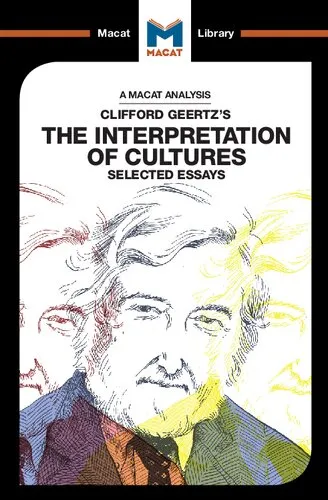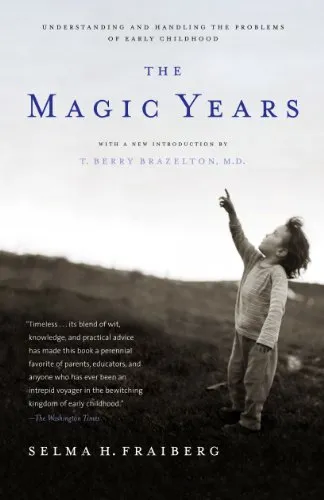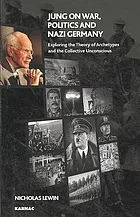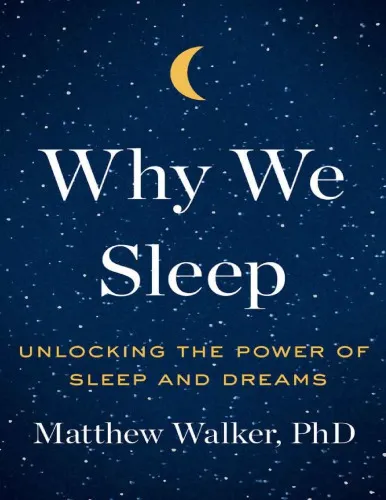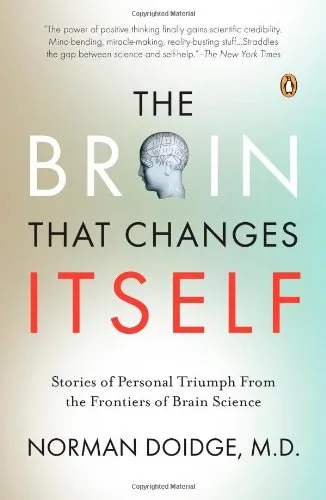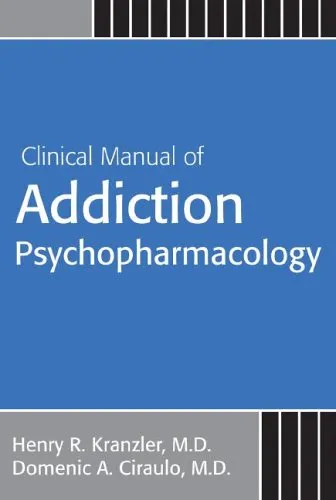Addiction Recovery Management: Theory, Research and Practice (Current Clinical Psychiatry)
4.5
بر اساس نظر کاربران

شما میتونید سوالاتتون در باره کتاب رو از هوش مصنوعیش بعد از ورود بپرسید
هر دانلود یا پرسش از هوش مصنوعی 2 امتیاز لازم دارد، برای بدست آوردن امتیاز رایگان، به صفحه ی راهنمای امتیازات سر بزنید و یک سری کار ارزشمند انجام بدینکتاب های مرتبط:
مقدمهای بر کتاب Addiction Recovery Management: Theory, Research and Practice
کتاب Addiction Recovery Management: Theory, Research and Practice که توسط John F. Kelly و William L. White نوشته شده است، یکی از مهمترین منابع پژوهشی و بالینی در زمینه مدیریت درمان و بهبود اعتیاد است. این اثر جامع، تلاش میکند تا پل ارتباطی بین نظریه، پژوهش و عمل در حوزه بازیابی از اعتیاد خلق کند. اثر مذکور، علاوه بر جمعآوری تحقیقات علمی معتبر در یک قالب قابل فهم، به ارائه اصول راهبردی در این زمینه میپردازد.
با استفاده از این کتاب، خوانندگان میتوانند به درک عمیقی از پویاییهای گسترده اعتیاد و روند بهبودی دست یابند و ابزارها و استراتژیهایی برای بکارگیری در حوزه بالینی بیاموزند. این اثر برای متخصصان حوزههای رواندرمانی، مشاوره، مددکاری اجتماعی، پرستاری و سایر رشتههای مرتبط بسیار ارزشمند و کاربردی است.
خلاصهای جامع از کتاب
کتاب در ۴ بخش اصلی تدوین شده و هر کدام به نحوی به تعمیق شناخت از بازیابی اعتیاد میپردازند:
- بررسی مفاهیم ابتدایی: این بخش به ارائه نظریات پایه و چارچوبهای فکری مرتبط با اعتیاد و فرایند بازیابی اختصاص دارد. مباحثی همچون شیوع اعتیاد، پویاییهای روانی-اجتماعی و تأثیر فرهنگ بر مدیریت درمان در این فصل مورد توجه قرار گرفتهاند.
- نقش منابع اجتماعی: این قسمت از کتاب تاکید ویژهای بر حمایتهای اجتماعی و تاثیر آن بر روند بازیابی دارد. به ویژه، از نقش خانواده، گروههای پشتیبان (مانند Alcoholics Anonymous) و شبکههای اجتماعی مثبت صحبت میکند.
- روشهای بالینی: نویسندگان در این بخش ابزارهای عملی و روشهای مبتنی بر شواهد را برای تسهیل روند بهبود در محیطهای درمانی معرفی میکنند.
- آینده مدیریت بازیابی: این بخش به رویکردهای نوین و در حال ظهور برای مدیریت اعتیاد پرداخته و تأثیر فناوری، پژوهشهای جدید و سیاستگذاریهای اجتماعی را بررسی میکند.
کتاب با زبانی علمی اما قابل فهم، به دنبال ارائه رویکردی جامع برای کمک به افراد در بازیابی سلامت و کاهش اثرات مخرب مواد مخدر و الکل بر زندگی آنهاست.
نکات کلیدی کتاب
- تمرکز بر نقش جامعه و خانواده به عنوان عوامل حیاتی در مدیریت بازیابی.
- ارائه روشهای مبتنی بر شواهد برای درمانگرها و مشاوران.
- بررسی اهمیت رویکردهای میانرشتهای در درمان اعتیاد.
- بحث راجع به فناوریهای نوین در تسهیل فرایند بازیابی.
- ایجاد ارتباط بین تحقیقات جدید و فرآیندهای عملی بالینی.
نقل قولهای معروف از کتاب
کتاب حاوی نقلقولهایی تاثیرگذار و برجسته است که برخی از آنها به شرح زیر است:
"Recovery is not just about stopping substance use. It’s about creating a life that is meaningful and fulfilling."
"Communities and families are the backbone of sustained recovery. Without them, the journey becomes overwhelmingly difficult."
چرا این کتاب اهمیت دارد؟
اعتیاد یکی از معضلات جدی در جوامع امروزی است که نه تنها زندگی فردی را تحت تأثیر قرار میدهد، بلکه بار سنگینی بر سیستمهای مراقبت بهداشتی و نهادهای اجتماعی میگذارد. کتاب Addiction Recovery Management به عنوان راهنمایی جامع در این زمینه، تلاش میکند تا دستورالعملهایی عملی و مستدل برای مقابله با این بحران ارائه دهد.
نویسندگان این اثر با ترکیب تحقیقات علمی و تجارب بالینی، اطلاعات ضروری برای متخصصان حوزه درمان و بازیابی فراهم کردهاند. علاوه بر این، این کتاب میتواند به خانوادهها و عزیزان افرادی که درگیر اعتیاد هستند، کمک کند تا نقش موثرتری در روند بازیابی داشته باشند. استفاده از زبان ساده و مثالهای کاربردی نیز باعث شده تا کتاب قابل استفاده برای مخاطبان غیر تخصصی باشد.
Introduction to Addiction Recovery Management: Theory, Research and Practice
Addiction Recovery Management: Theory, Research and Practice is a pioneering work in the field of addiction recovery that bridges the gap between research, practice, and real-life application. Authored by John F. Kelly and William L. White, the book delves deeply into the evolving concept of recovery management, which extends beyond the traditional treatment model to a broader, more sustained approach aimed at promoting long-term recovery. Grounded in evidence-based practices and decades of experience, this book offers professionals, researchers, and individuals with lived experience a comprehensive understanding of effective strategies to tackle substance use disorders (SUDs).
Unlike traditional models of addiction treatment that focus on acute care, this text emphasizes the importance of sustained recovery strategies and the necessity of balancing treatment services with peer-support systems, community resources, and holistic frameworks. With the rising popularity of recovery-oriented systems of care (ROSC), Addiction Recovery Management contextualizes the development of these systems within theoretical frameworks and practical implementation strategies. This meticulous volume demonstrates how recovery-focused solutions can reduce relapse rates, increase personal resilience, and encourage enduring wellness.
Detailed Summary of the Book
The book is divided into thoughtfully curated sections that examine addiction recovery from multiple perspectives. It begins by exploring the historical and cultural shifts in the understanding of addiction recovery, highlighting a growing focus on strengths-based approaches. Here, readers are introduced to recovery management principles, which represent a paradigm shift from acute treatment episodes to long-term recovery support.
Key chapters of the book focus on the intersection of science and practice. Notably, research on neurobiology, resilience, and the social determinants of health is woven into practical discussions on how to sustain recovery. The text also illuminates the role that mutual support groups like Alcoholics Anonymous (AA) and Narcotics Anonymous (NA) play, and it provides case studies of innovative recovery programs from around the world.
Further, the book emphasizes cross-disciplinary collaboration between stakeholders in healthcare, criminal justice, and community organizations to ensure the effectiveness of recovery strategies. It outlines measures to design recovery-oriented systems of care that are person-centered and adaptable to the complex needs of individuals. Finally, it concludes with future directions for research and policy that stress the importance of preventing relapse and fostering a culture of sustained recovery.
Key Takeaways
- Recovery management is about long-term, holistic care, not just acute treatment.
- Person-centered approaches and recovery-oriented systems of care (ROSC) are vital to success.
- Peer support and community-based interventions are crucial pillars for sustained recovery.
- Neurobiology, resilience, and social determinants play a significant role in recovery outcomes.
- Effective addiction recovery requires partnerships across healthcare, justice, and community sectors.
Famous Quotes from the Book
“Recovery is not simply about the cessation of drug or alcohol use; it is about rebuilding lives and reconnecting individuals to their communities and their own potential.”
“Sustained recovery involves not just treating the symptoms of addiction but addressing the root causes and empowering individuals through community resources and peer support.”
Why This Book Matters
Addiction Recovery Management: Theory, Research and Practice is an indispensable resource for anyone involved in the addiction recovery field. At a time when addiction rates continue to rise globally, this book offers a much-needed guide for professionals who strive to make recovery-oriented care more accessible and effective. It challenges traditional practice models, inspiring a shift towards innovative, evidence-backed approaches that prioritize the individual’s long-term recovery journey.
This book is also crucial for policymakers, healthcare administrators, and community leaders who are working to design better systems for addiction treatment and recovery. By championing a collaborative care model that includes professionals, peers, and families, the book underscores the necessity of wrapping recovery efforts around individuals in ways that are sustainable, culturally sensitive, and person-centered.
Finally, its extensive focus on education and empowerment makes it a valuable tool for recovery advocates and individuals affected by addiction. Whether you are a clinician, researcher, or someone on a recovery journey, this book provides insights that encourage hope, resilience, and lasting transformation.
دانلود رایگان مستقیم
شما میتونید سوالاتتون در باره کتاب رو از هوش مصنوعیش بعد از ورود بپرسید
دسترسی به کتابها از طریق پلتفرمهای قانونی و کتابخانههای عمومی نه تنها از حقوق نویسندگان و ناشران حمایت میکند، بلکه به پایداری فرهنگ کتابخوانی نیز کمک میرساند. پیش از دانلود، لحظهای به بررسی این گزینهها فکر کنید.
این کتاب رو در پلتفرم های دیگه ببینید
WorldCat به شما کمک میکنه تا کتاب ها رو در کتابخانه های سراسر دنیا پیدا کنید
امتیازها، نظرات تخصصی و صحبت ها درباره کتاب را در Goodreads ببینید
کتابهای کمیاب یا دست دوم را در AbeBooks پیدا کنید و بخرید
1359
بازدید4.5
امتیاز0
نظر98%
رضایتنظرات:
4.5
بر اساس 0 نظر کاربران
Questions & Answers
Ask questions about this book or help others by answering
No questions yet. Be the first to ask!


